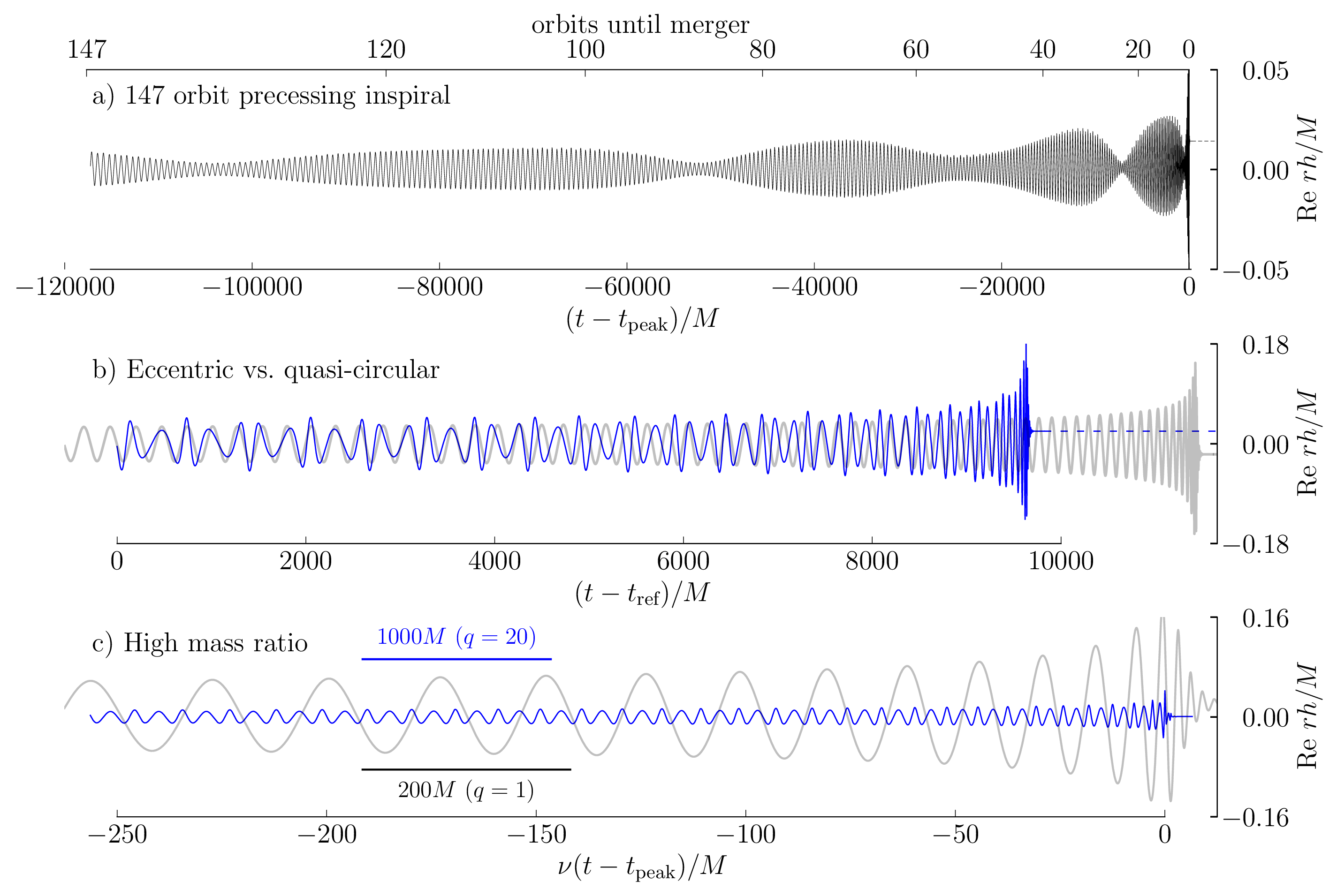The SXS Collaboration’s third catalog of binary black hole simulations
Mark A. Scheel, (3 authors), Leo C. Stein, (54 more authors)
Class. Quantum Grav. 42 195017 (2025) [arXiv:2505.13378] [doi:10.1088/1361-6382/adfd34]
We present a major update to the Simulating eXtreme Spacetimes (SXS) Collaboration’s catalog of binary black hole simulations. Using highly efficient spectral methods implemented in the Spectral Einstein Code
SpEC, we have nearly doubled the total number of binary configurations from 2,018 to 3,756. The catalog now densely covers the parameter space with precessing simulations up to mass ratio and dimensionless spins up to with near-zero eccentricity. The catalog also includes some simulations at higher mass ratios with moderate spin and more than 250 eccentric simulations. We have also deprecated and rerun some simulations from our previous catalog (e.g., simulations run with a much older version ofSpECor that had anomalously high errors in the waveform). The median waveform difference (which is similar to the mismatch) between resolutions over the simulations in the catalog is . The simulations have a median of 22 orbits, while the longest simulation has 148 orbits. We have corrected each waveform in the catalog to be in the binary’s center-of-mass frame and exhibit gravitational-wave memory. We estimate the total CPU cost of all simulations in the catalog to be 480,000,000 core-hours. We find that using spectral methods for binary black hole simulations is over 1,000 times more efficient than much shorter finite-difference simulations of comparable accuracy. The full catalog is publicly available through thesxsPython package and at https://data.black-holes.org.
